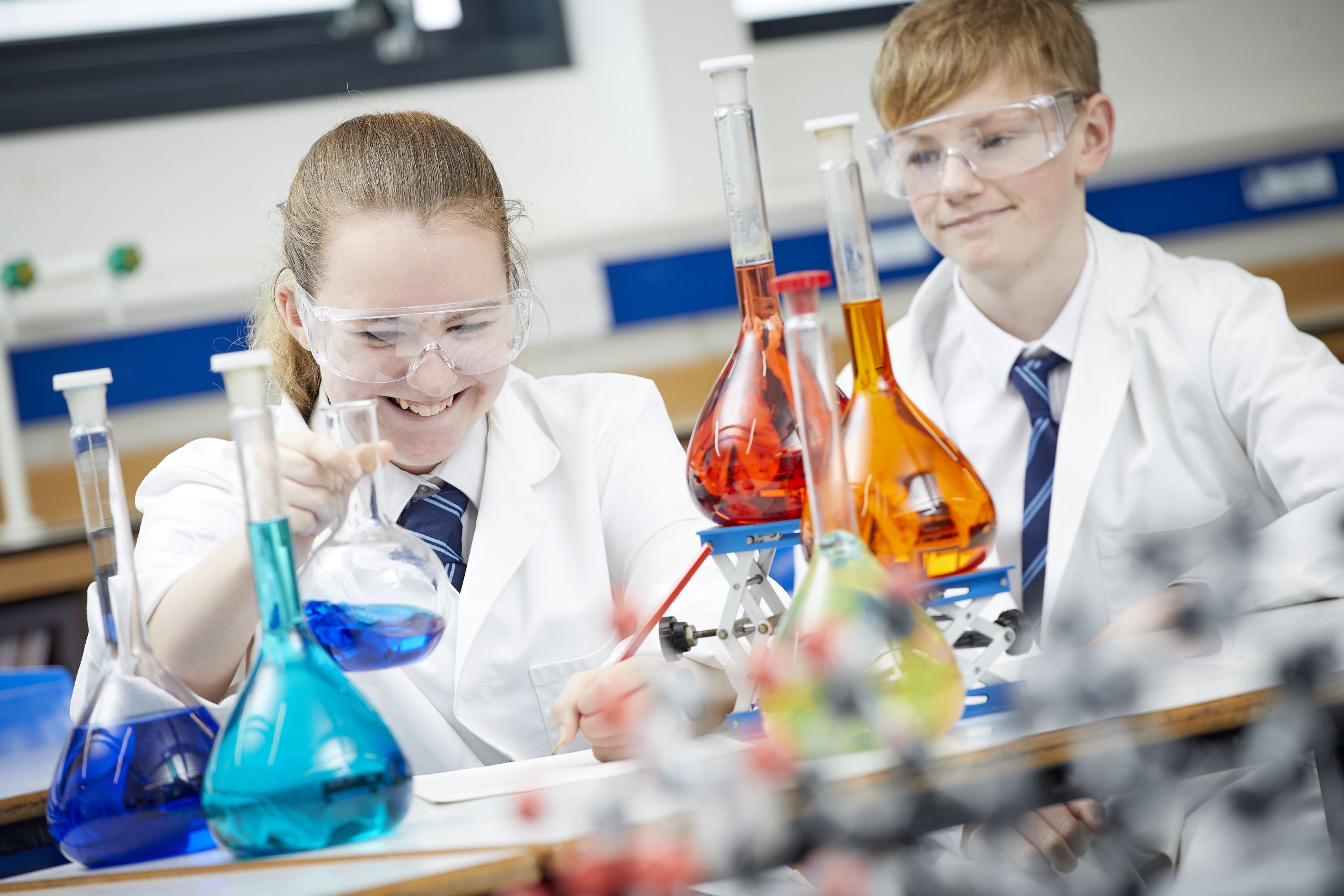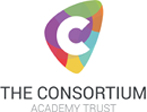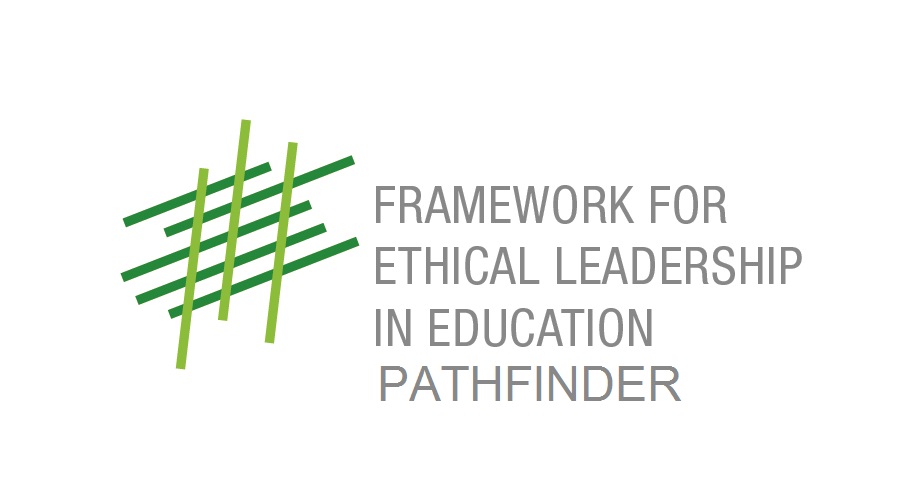Computing and ICT
| Computing and ICT | |
|---|---|
| Year 7 |
A varied course that provides students with a foundation of skills and knowledge across a range of IT applications that they can use at home and throughout the academy to support their learning. This will include undertaking creative projects that involve selecting, using and combining multiple applications to achieve goals. They will learn about different audiences and users and give consideration to their needs by collecting, analysing and formatting data appropriately, they will create a range of digital artefacts to meet these needs. To develop an understanding of a range of ways to use technology safely, respectfully, responsibly and securely, including how to protect their online identity and privacy. They will be advised how to recognise inappropriate content and conduct while learning how to report these concerns. They will have the opportunity to begin developing their problem solving skills and strategies through block-based and text-based programming. |
| Year 8 |
A balanced mix of both ICT and Computer science topics covered, that will have them undertaking creative projects involving selecting, using and combining multiple applications to achieve their goals. This will include an element of collecting and analysing data and meeting the needs of known users. They will have practical opportunities to explore using graphics and web development software with attention to trustworthiness, design and usability. To further understand ways to use technology safely, respectfully, responsibly and securely, including protecting their online identity and strengthening their privacy. Recognising inappropriate content and conduct and knowing how to report concerns. To design, use and evaluate real-world problems and physical systems and model these through computational abstractions, using both text based programming and flowchart development. |
| Year 9 |
Ensuring that students have the appropriate tools and knowledge for both possible Key Stage 4 courses. Students will create a series of projects that involve using specialist software to achieve goals, including manipulating and analysing data, following design specifications to meet criteria. Students have an opportunity to create a range of digital artefacts for a given audience, using graphics software and web development with consideration and attention to optimisation and appropriateness. They are encouraged to consider basic computer architecture and network infrastructure, along with an understanding of how computers communicate across the globe. Students will be advised and practice how to use computers effectively, safely, respectfully, responsibly and securely. Students will have the opportunity to design, use and evaluate computational abstractions that model real-world problems and physical systems, they will do this through text based programming in a professional functional development environment. They will have the opportunity to use simple boolean operations to allow programs to determine their outputs of simple systems. |
| Year 10 |
BTEC DIT – In Year 10, the BTEC DIT Technical Award gives learners the chance to research and explore the impact of increased digital technology on a range of organisations and their decision making. In this aspect of the course, learners will be tasked with investigating the pieces of technology that are having the biggest impact on modern working and collaboration. From this they will look the main ways that modern technologies come under threat both internally and externally, and ultimately how to protect them from this The method of assessment in this unit develops further skills in our learners. It asks learners to link the theory to a range of real life businesses and situations to help develop understanding, as well as improving classic exam skills in the form of knowledge, application, analysis and evaluation. Students who do well on this part of the course will gain a better understanding of the world of work they are close to joining, and will be more aware of the working practices and issues relating to modern technologies. They will also develop key exam skills required for further study in Key Stage 5 and beyond. BTEC DIT (Green and Blue Pathway) - In Year 10, the BTEC DIT Technical Award gives learners the chance to research and explore the impact of increased digital technology on a range of organisations and their decision making. In this aspect of the course, learners will be tasked with investigating the pieces of technology that are having the biggest impact on modern working and collaboration. From this they will look the main ways that modern technologies come under threat both internally and externally, and ultimately how to protect them from this The method of assessment in this unit develops further skills in our learners. It asks learners to link the theory to a range of real life businesses and situations to help develop understanding, as well as improving classic exam skills in the form of knowledge, application, analysis and evaluation. Students who do well on this part of the course will gain a better understanding of the world of work they are close to joining, and will be more aware of the working practices and issues relating to modern technologies. They will also develop key exam skills required for further study in Key Stage 5 and beyond. Computer Science - Students will continue to be safe and confident users of computing resources both in and out of the classroom. Students will further analyse problems in computational terms through practical experience of solving such problems, including designing, writing and debugging programs. This will provide students with the opportunity to understand and explore the world around us, both natural and artificial, in computational terms. Students will begin to develop an understanding of the components that make up digital systems, and how they communicate with one another and with other systems. This will relate to their own experience of using a network and some of the problems that can happen as well as looking at possible solutions. Students will continue to develop the mathematical skills relevant to Computer Science. They will also be introduced to some mathematical concepts not covered within the mathematics curriculum, thus broadening their mathematical knowledge. |
| Year 11 |
BTEC DIT – In Year 11, the BTEC DIT Technical Award gives learners the chance to build their own dashboard which can be used to process and manipulate data to draw conclusions from. As data, and data driven decision making, becomes more common and important to modern day businesses, it is important that our learners understand the complexity of working with data, and the importance of using appropriate methods to analyse it. In this aspect of the course, learners will be tasked with investigating ways to collect data appropriately based on a scenario given to them. They will then choose which methods of data analysis to use, and how to include this in their project. Finally, pupils will be given time to analyse some data, and draw some conclusions about it, long with the systems and processes they used. This unit offers valuable insight into the world of work, and will set learners up for working in a range of industries that now use data frequently. The unit also offers a level of competency in using spreadsheets and databases which will offer a sound base for further study at Level 3. BTEC DIT (Green and Blue Pathway) – In Year 11, the BTEC DIT Technical Award gives learners the chance to build their own dashboard which can be used to process and manipulate data to draw conclusions from. As data, and data driven decision making, becomes more common and important to modern day businesses, it is important that our learners understand the complexity of working with data, and the importance of using appropriate methods to analyse it. In this aspect of the course, learners will be tasked with investigating ways to collect data appropriately based on a scenario given to them. They will then choose which methods of data analysis to use, and how to include this in their project. Finally, pupils will be given time to analyse some data, and draw some conclusions about it, long with the systems and processes they used. This unit offers valuable insight into the world of work, and will set learners up for working in a range of industries that now use data frequently. The unit also offers a level of competency in using spreadsheets and databases which will offer a sound base for further study at Level 3 Computer Science - Students will continue to be safe and confident users of computing resources both in and out of the classroom. Students will develop an understanding of the impacts of digital technology to the individual and to wider society. This will allow them a greater understanding of how their own lives have been, and will be, impacted by the use and further development of digital technologies. It will allow them to explore some of the ethical questions raised and begin to develop their own ideas and thoughts about how the future should be shaped. Students will have developed skills in problem solving and computational thinking, allowing them to tackle problems using decomposition and abstraction. These are skills that they can apply to a wide range of problems, not just those within Computer Science. Students will have gained a better understanding of the digital world around them and of how it works and what challenges and opportunities might exist during their lifetime. |
| Year 12 |
Computer Science - The students develop their understanding of how computers can store and manipulate data. They can then begin applying this to their own programming and problem solving, particularly in terms of Paper 1 and the NEA. Programming skills are developed using procedural programming with an introduction to object-oriented and functional programming later in the year. Students need to be able to grasp the fundamentals of the concepts before developing their skills in these areas. The students develop an understanding of the benefits of each and the situations where they would be applied. Students will have an understanding of how computer systems communicate and how data flows around a network. Students will continue to develop their problem solving skills and understanding of how to tackle a problem using computational thinking. This is a transferable skill to many situations. Students will gain an understanding of the issues surrounding the use of computers including the legal and cultural issues. This will allow them to inform their own use of computers and take this knowledge forward to their chosen path post 18. ICT - In Unit 3 students will explore different social media websites, the ways in which they can be used and the potential pitfalls when using them for business purposes. Students will develop a plan to use social media strategies for business purposes to achieve specific aims and objectives. They will then implement the plan, developing and posting content and interacting with others. Finally, students will collect data on the business use of social media and review the effectiveness of their efforts. They will develop an understanding how using social media for business purposes is useful for employment in information technology and in a variety of business sectors. Also, social media skills are closely linked with web and mobile applications development. This unit gives students a starting point for progression to roles such as social media specialist, content developer and web developer. In order to produce information to support many business processes as well as our social lives, relational databases are widely used to manage and process data. From the smallest in-house systems to stock control systems for large online retailers, databases are repositories of information that are a significant part of organisational operating requirements. In Unit 2 students will examine the structure of data and its origins, and how an efficient data design follows through to an effective and useful database. Students will examine a given scenario and develop an effective design solution to produce a database system. They will then test their solution to ensure that it works correctly. Finally, they will evaluate each stage of the development process and the effectiveness of their database solution. To complete the assessment tasks within this unit, students will need to draw on their learning from across their programme. The skills gained in this unit support progression to IT-related higher education courses and to employment in a role that requires computing-related expertise. |
| Year 13 |
Computer Science - The students continue to develop their understanding of how computers can store and manipulate data. They can then begin applying this to their own programming and problem solving, particularly in terms of Paper 1 and the NEA. The different forms of programming are explored leading on from procedural to object-oriented and functional. The students develop an understanding of the benefits of each and the situations where they would be applied. Communication is developed from Year 1 looking at how different networks can communicate effectively. Students will continue to develop their problem solving skills and understanding of how to tackle a problem using computational thinking. This is a transferable skill to many situations. ICT - Information technology (IT) systems have a significant role in the world around us and play a part in almost everything we do. Having a sound understanding of how to effectively select and use appropriate IT systems will benefit students personally and professionally. In Unit 1 students will explore the relationships between the hardware and software that form an IT system, and the way that systems work individually and together, as well as the relationship between the user and the system. They will examine issues related to the use of IT systems and the impact that they have on organisations and individuals. To complete the assessment task within this unit, students will need to draw on their learning from across their programme. This unit will give students a fundamental and synoptic understanding of all areas of IT, supporting their progression to an IT-related higher education course. In order to produce information to support many business processes as well as our social lives, relational databases are widely used to manage and process data. From the smallest in-house systems to stock control systems for large online retailers, databases are repositories of information that are a significant part of organisational operating requirements. In Unit 2 students will examine the structure of data and its origins, and how an efficient data design follows through to an effective and useful database. Students will examine a given scenario and develop an effective design solution to produce a database system. They will then test their solution to ensure that it works correctly. Finally, they will evaluate each stage of the development process and the effectiveness of their database solution. To complete the assessment tasks within this unit, students will need to draw on their learning from across their programme. The skills gained in this unit support progression to IT-related higher education courses and to employment in a role that requires computing-related expertise. |




